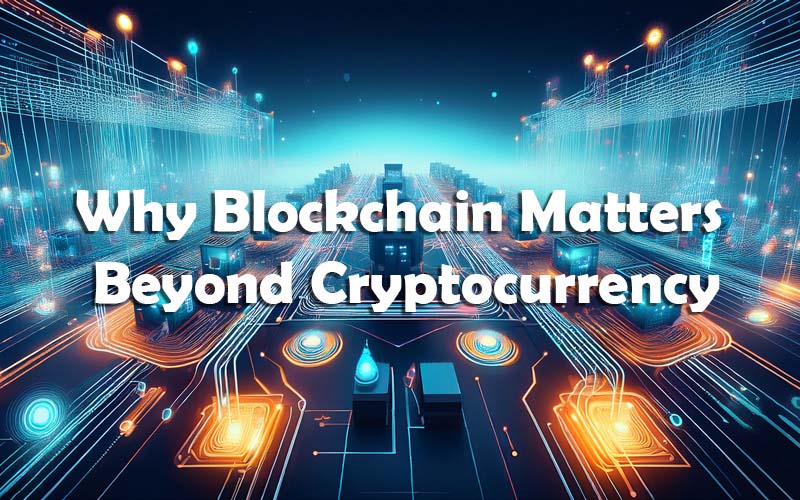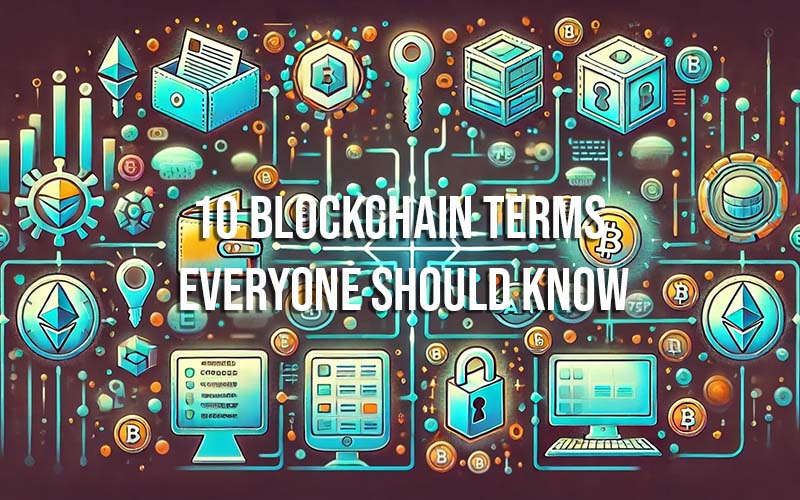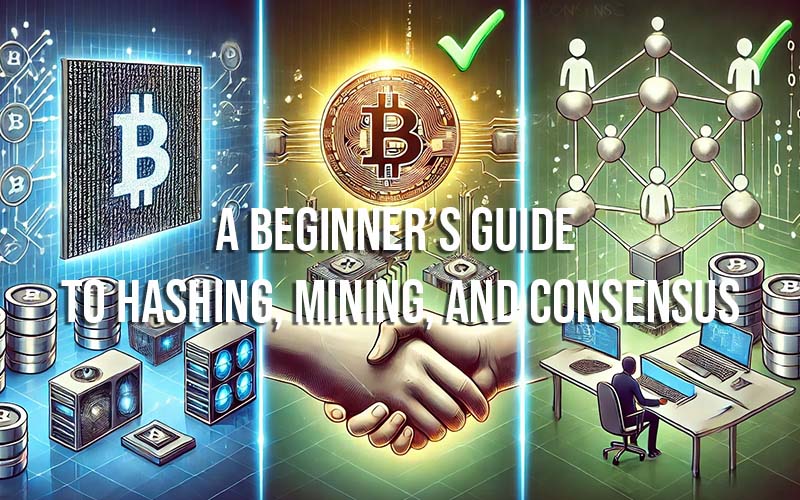Why Blockchain Matters Beyond Cryptocurrency
Mon, 31 Mar 2025

Follow the stories of academics and their research expeditions

Let’s face it: the world of blockchain can feel like it speaks its own language. If you’ve ever read a crypto article or joined a blockchain discussion and felt totally lost, you’re not alone.
But don’t worry—you don’t need to be a developer or a tech wizard to get the hang of it. Understanding just a few key terms can make blockchain way less intimidating and a lot more interesting.
Here are 10 blockchain terms that’ll help you follow the conversation, whether you're investing, building, or just exploring this fast-moving space.
1. Blockchain
Let’s start with the big one. A blockchain is a distributed, digital ledger that records transactions across many computers. Instead of being controlled by one central entity, it’s maintained by a network of participants. Each record (or “block”) is linked to the previous one, forming a secure and unchangeable chain of data.
2. Wallet
A wallet in the blockchain world isn’t made of leather—it’s a digital tool that lets you store, send, and receive cryptocurrencies. There are different types:
Hot wallets (connected to the internet)
Cold wallets (offline, for extra security)
Wallets don’t actually “hold” coins—they store the private keys that let you access your crypto.
3. Private Key
Think of your private key as your password to your wallet. It’s a string of characters that gives you full control over your funds. If someone else gets it, they can access your crypto. If you lose it, your funds are gone—no customer support, no reset button. So keep it safe!
4. Node
A node is any computer that connects to a blockchain network. Nodes help store, validate, and distribute the data in real time. Some are full nodes (they store the entire blockchain), while others are lightweight and just verify certain parts. Together, nodes make the system decentralized and resilient.
5. Consensus
Consensus is how all the nodes in a blockchain network agree on which transactions are valid. Since there’s no central authority, the system relies on rules like Proof of Work or Proof of Stake to ensure trust and accuracy. Without consensus, blockchains wouldn’t work.
6. Smart Contract
Smart contracts are like automated digital agreements. Once certain conditions are met, the contract executes itself—no need for a middleman. They’re used for everything from DeFi platforms to NFTs and even voting systems.
Example: “If person A sends 1 ETH to person B, release the NFT.”
7. Gas Fees
On blockchains like Ethereum, you pay a gas fee to process transactions. It’s the cost of using the network and compensates validators or miners for their work. Gas fees can vary depending on network traffic and the complexity of your transaction.
8. Token
A token is a digital asset that exists on a blockchain. Some tokens are used as currency, like USDC or DAI. Others represent voting power, ownership in a DAO, or access to apps and services. Not all tokens are cryptocurrencies—some serve other functions entirely.
9. DApp (Decentralized Application)
A DApp is an app that runs on a blockchain instead of a traditional server. It’s open-source, trustless, and transparent, and often connects to smart contracts. Think of Uniswap (for crypto trading) or Lens Protocol (for decentralized social media).
10. NFT (Non-Fungible Token)
NFTs are unique digital assets that prove ownership of a one-of-a-kind item—like a piece of art, music, video, or even virtual real estate. Unlike cryptocurrencies (which are interchangeable), NFTs are non-fungible, meaning no two are exactly the same.
Final Thoughts
Mastering these ten terms won’t make you a blockchain expert overnight—but it will give you the confidence to explore deeper, ask better questions, and follow conversations that once felt out of reach.
Blockchain doesn’t have to be confusing. The more you learn, the more it clicks. And we’re here to break it down, one post at a time.
Got a term you’ve come across that didn’t make this list? Drop it in the comments—we might feature it in a future post!
Mon, 31 Mar 2025

Tue, 25 Mar 2025

Tue, 25 Mar 2025

Leave a comment